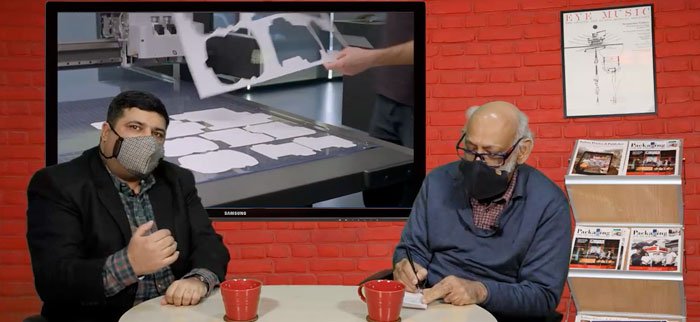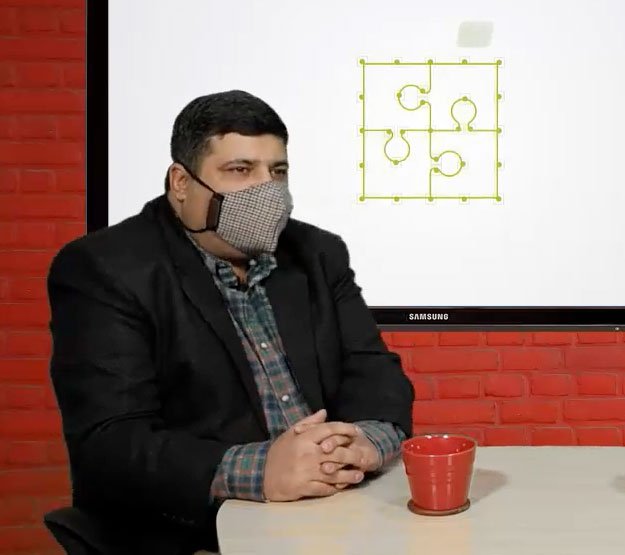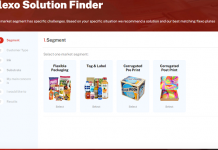Karan Talwar, director of Sales, South Asia, Esko, visited the Packaging South Asia office in Noida a couple of days before Christmas and shared some of the industry developments in the past year. From his viewpoint, the nine months since India’s lockdown in the last week of March 2020 have been very productive. While some of us wonder about what is ‘the new normal,’ Talwar has lived the new normal, and since Esko India and he have been successful in a situation where many of us were not, it gives meaning to the expression.
Speaking about the Covid-19 pandemic and its effect on the industry, Karan Talwar said, “If I talk about the packaging industry, it has been a chequered year. It started with many bullish sentiments, but then the pandemic came, and the lockdowns happened. One good thing that happened was realizing that we need to accept the constraints to create ‘the new normal.’ We started using different tools to communicate, and a variety of new business structures were built.”
Digital communication
He added that the Esko organization implemented several digital alternatives and tools to communicate with its customers across the country. Apart from web presentations and virtual demonstration events, webinars, and other activities, video calls kept the teams in touch with their colleagues and customers. Talwar also mentioned the strong support and motivation from the Esko organization to its employees, making them take on the challenges with spirit.
When I said to Talwar that packaging, as an industry, was almost immune to the pandemic and a beneficiary of the fears and dangers it created, he responded. “Packaging came up as a factor of health and hygiene. As this perception spread, packaging became an essential ingredient of day to day commerce and safety. Many of our customers had a dip in Q2, but at end-year are already back to their pre-pandemic production levels.”

Automation meets efficiency meets a real need
Software and automation tools are of high significance in the packaging industry. They help add the final touches to the pack in an iterative process of idea, change, improvement, and approval. For technicians working from home, remote design and prepress work were approved by packaging buyers and product heads, also working from home. The popularity of this process remained even when the lockdowns eased. It was and is, still simply impractical to have employees and customers visit plants for the design and prepress changes or approvals of the packs that are urgently needed to keep the supply chains humming.
In the past year, there is not a single reported instance of a shortage of any food or pharma product in the Indian markets. There have been no empty shelves and no hoarding or cornering of SKUs although there was bulk buying of food products at times. At times some prescription medicines have been unavailable, but that has been a part of the normal change in product mix or compliances rather than a breakdown in the pharma supply chain.
Digital communication, instructions, and marking, and approval became the norm in packaging production. Talwar said, “As far as packaging software, everyone in the packaging supply chain has realized that having the right software tools will make the entire system much more efficient. That’s where Esko software like the Automation engine and Web Center did exceedingly well in the past few months both in sales and performance.”
Using these automated software tools, many tasks can function sequentially without human intervention. During the Covid-19 induced lockdowns and with the new work from home ethic, these automated tasks were performed with remote intervention by employees working from home.
Apart from the industrial-strength Web Center, Esko’s 3D Studio software technology excelled during the pandemic year. This technology-enabled people to communicate with a 3D packaging structure using a simple VRML or a 3D PDF reader. Talwar says about Esko Share and Approve software, “It is a straightforward on-the-cloud software system. A no-contact policy is used by the system as users can view and approve 3D packaging structures through their digital signatures. They can also review and annotate all the print parameters of the pack.”
Looking at 20 to 25% growth in the coming year
Esko also did very well with their digital imaging systems during 2020. Karan comments on the trends in this space, “Transformation from gravure to flexo packaging is happening in the Indian packaging sector. Suppliers are getting closer to the final packaging buyers. Customers in tier-II cities also want this digital flexo imaging equipment.
“Additionally, many converters have realized that having a prepress and a flexo platemaking system in-house can give them a lot of control to innovate and print as per customers’ requirements.”
Lastly, I asked Talwar about his thoughts for the coming year. “In the coming year, I see these trends continuing. We, at Esko, are looking at a minimum of 20-25% of growth,” he said.










